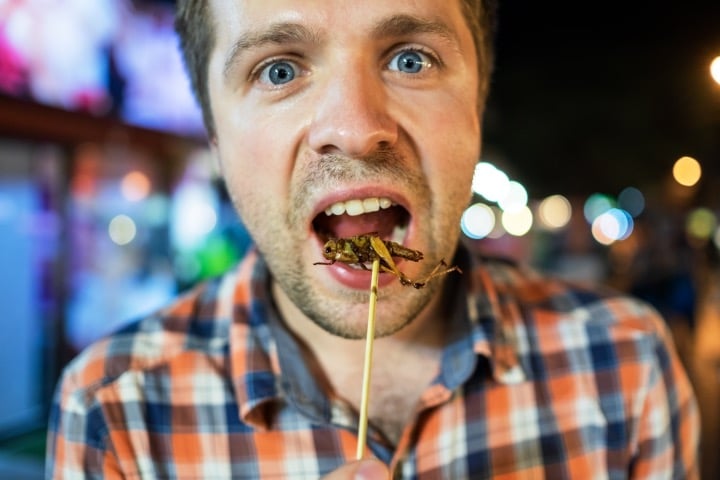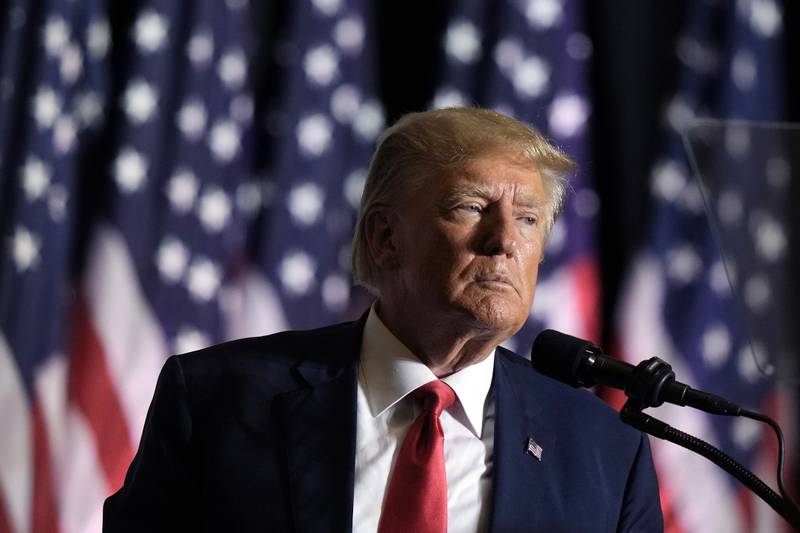
That global elites are pushing us to eat insects instead of fish, pigs, cows, and chicken to “save the climate” is a “right-wing conspiracy theory,” as National Public Radio recently called it. And those pushing the idea are “right-wing conspiracy theorists,” most likely “anti-Semites” or “4 Chan” nutters.
But a funny thing happened on the way to the cricket farm. NPR’s editors forgot that years of “we-must-eat-insects” propaganda preceded NPR’s latest smear of normal people who don’t relish consuming arthropods.
Ditto for other media reports. Some say the plan to force us to eat mealworms is a “conspiracy.” Others say sliced bread made with cricket flour is the greatest thing since sliced bread made with Gold Medal.
“You’ll eat those bugs and like it” will be the new “eat-your-peas” mantra from the globalist nannies. And those of you who don’t like it will be labeled nuts.
“Anti-Semitic Trope”
The latest from NPR is a report on its Code Switch podcast, summarized in a synopsis at the taxpayer-subsidized leftist propaganda outfit:
“I will not eat the bugs” became a meme on 4chan and emerged in conservative talk shows and political speech. But why has it gained traction? In this week’s Code Switch, Gene Demby and NPR reporter Huo Jingnan dive into the sprawling conspiracy theory behind it. Proponents of the theory lean on the anti-semitic trope that “global elites” have a plot to control the masses — in this case under the guise of climate change solutions — by forcing them to eat bugs.
Actually, “global elites” do “have a plot to control the masses,” the “trope” regardless.
Anyway, on April 2, NPR informed the world that the “bug-eating conspiracy goes mainstream,” citing a tweet from a European conservative. NPR was particularly concerned about those who uttered “I will not eat the bugs,” another “anti-Semitic trope” we must presume. And “using insects as a source of protein is an idea that’s floated on the edges of the policy debate.”
NPR’s editors, again, should have googled their own archives. The following pro-bug-eating stories would have appeared:
The Green Argument For Eating Cicadas (Plus A Few Recipes), May 24, 2021:
When periodical cicadas emerge in massive numbers every 17 years, it’s a feast for birds and small mammals. Some cicadas also end up in the bellies of humans, who say entomophagy (eating bugs) is not only delicious, but can also be beneficial to the environment.
“I think we need to start considering other alternative sources of protein,” says Jessica Fanzo, a professor at Johns Hopkins University who studies food policy, with a focus on making the food we eat more sustainable.
Even Neil DeGrasse Tyson Is Now Munching On Bugs, March 23, 2015:
Tyson, a modern-day science hero, says the logical appeal behind eating bugs, a growing trend in the West, is perfectly clear: “Insects have been long known as a great source of protein, so I don’t have a problem with that.”
The Joys And Ethics Of Insect Eating, April 3, 2014:
Because the crickets, in the form of cricket flour, were baked into chocolate-chip cookies, it wasn’t as if I found myself crunching down on visible insect parts. So my first step was a baby step, to be sure. And, as it turned out, I found the cookies to taste good.
They were baked and sent to me by Robert Nathan Allen of Austin, Texas. He’s the founder of a nonprofit organization called Little Herds.
Insects May Be The Taste Of The Next Generation, Report Says, May 17, 2013:
A report from the UN Food and Agriculture Organization says insects offer a huge potential for improving the world’s food security. Peter Menzel, co-author of Man Eating Bugs, describes some insect-based cuisine and the western aversion to creepy-crawly snacks.
With the United Nations, Johns Hopkins University, and establishment scientist Neil DeGrasse Tyson all promoting the consumption of bugs, why anyone would think global elites are involved in this push is a mystery.
In March, Bloomberg reported that “EU Critics Have a New Conspiracy Theory.” In 2021, the Daily Beast explained the conspiracy theory under “COVID Truthers’ New Freakout: Being Forced to Eat Bugs.” The website confessed that “technocrats” do promote bug eating, but “this advocacy is usually vague and soft.”
Not Vague, Not Soft
Not really, as NPR’s archived material shows, along with these stories.
Just last year, the World Economic Forum offered the “5 reasons why eating insects could reduce climate change” in an opinion piece from two eggheads that was “part of Davos agenda.”
The consumption of insects can offset climate change in many ways.
We’ve been conditioned to think of animals and plants as our primary sources of proteins, namely meat, dairy and eggs or tofu, beans and nuts, but there’s an unsung category of sustainable and nutritious protein that has yet to widely catch on: insects.
Before you say “yuck,” hear us out.
No thanks.
“If we want to save the planet, the future of food is insects,” The Guardian’s Richard Godwin asserted with metaphysical certitude.
“It ought to be obvious to anyone with an appetite that the way we eat is not sustainable — and that something fundamental will have to shift if we do not want to end up with half the world obese and the other half under water,” wrote cricket-scarfing scribe Godwin, whose sallow appearance suggests he may have eaten one too many bugs himself:
“Civilisation is in crisis,” was the verdict of the EAT-Lancet international commission into the global food chain in 2019, which contained a dire warning of 200,000 years of human history culminating in ecological disaster. Modern industrial agriculture, extractive capitalism, the profit motive, governments cowering before Big Food and our own greedy western appetites all must take a share of the blame.
Godwin wants us to drink fly larvae milk.
And just to show how long the global elites haven’t been spewing the “vague and soft” propaganda, we can return to October 2014. “Could insects be the wonder food of the future?” the BBC asked.
Why yes, now that you mention it. They could. A Harvard grad named Laura D’Asaro and friends started a company that makes Chirps, cricket-flour edibles:
D’Asaro and her partners realised that they’d need to ease consumers into the idea of bug gastronomy, so they abandoned the idea of serving whole insects and decided to work instead with cricket flour, which could be invisibly incorporated into familiar foods. They decided to launch their company, which they named Six Foods, with a product Americans already love: chips [crisps]. They created ‘Chirps’, a triangular chip made of black beans, rice and cricket flour, which is lightly spritzed with oil and then baked. Chirps are high in protein and low in fat and taste similar to tortilla chips.
That February, The Atlantic delivered this headline: “To Save the World, Eat Bugs.” It cited a report from the U.N., Edible insects: future prospects for food and feed security, which called “for the inclusion of insects in a daily diet, as an alternative to resource-intensive staples like beef, poultry, and fish.”
So, since at least 2014, the United Nations, Johns Hopkins, a Harvard grad, establishment scientists, and the leftist mainstream media have pushed out a relentless stream of eat-bugs propaganda.
Yet normal people who worry about those global elites and their message are “right-wing conspiracy theorists” who peddle “anti-Semitic tropes” about a “vague and soft” proposal “that’s floated on the edges of the policy debate.”
Once again, the conspiracy is in plain view. And once again, the conspirators say we can’t believe our lying eyes.
Shop For Night Vision | See more…
Shop For Survival Gear | See more…
-
Sale!

Mesh Shooting Hunting Vest with Multi Pockets
Original price was: $59.99.$39.99Current price is: $39.99. Add to cart -
Sale!

Stainless Steel Survival Climbing Claw Carabiner Multitool Folding Grappling Hook
Original price was: $19.99.$9.99Current price is: $9.99. Add to cart -
Sale!

Tactical Camo Nylon Body Armor Hunting Vest With Pouch
Original price was: $49.99.$39.99Current price is: $39.99. Select options This product has multiple variants. The options may be chosen on the product page



















































